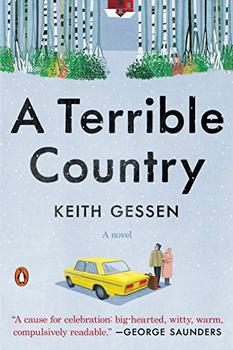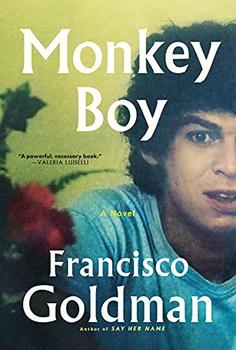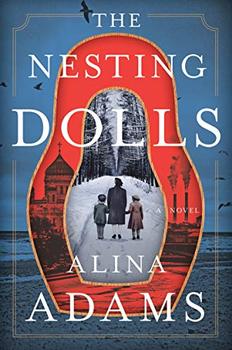Summary | Excerpt | Reviews | Beyond the book | Read-Alikes | Genres & Themes | Author Bio

A Novel
by Keith GessenA literary triumph about Russia, family, love, and loyalty—the first novel in ten years from a founding editor of n+1 and author of All the Sad Young Literary Men
When Andrei Kaplan's older brother Dima insists that Andrei return to Moscow to care for their ailing grandmother, Andrei must take stock of his life in New York. His girlfriend has stopped returning his text messages. His dissertation adviser is dubious about his job prospects. It's the summer of 2008, and his bank account is running dangerously low. Perhaps a few months in Moscow are just what he needs. So Andrei sublets his room in Brooklyn, packs up his hockey stuff, and moves into the apartment that Stalin himself had given his grandmother, a woman who has outlived her husband and most of her friends. She survived the dark days of communism and witnessed Russia's violent capitalist transformation, during which she lost her beloved dacha. She welcomes Andrei into her home, even if she can't always remember who he is.
Andrei learns to navigate Putin's Moscow, still the city of his birth, but with more expensive coffee. He looks after his elderly—but surprisingly sharp!—grandmother, finds a place to play hockey, a café to send emails, and eventually some friends, including a beautiful young activist named Yulia. Over the course of the year, his grandmother's health declines and his feelings of dislocation from both Russia and America deepen. Andrei knows he must reckon with his future and make choices that will determine his life and fate. When he becomes entangled with a group of leftists, Andrei's politics and his allegiances are tested, and he is forced to come to terms with the Russian society he was born into and the American one he has enjoyed since he was a kid.
A wise, sensitive novel about Russia, exile, family, love, history and fate, A Terrible County asks what you owe the place you were born, and what it owes you. Writing with grace and humor, Keith Gessen gives us a brilliant and mature novel that is sure to mark him as one of the most talented novelists of his generation.
The novel is sprawling; Gessen includes details that some might find mundane or superfluous, descriptions of hockey matches, a play-by-play of Andrei unclogging the kitchen sink and cooking kasha, and a long description of a documentary about the poet Tsvetaeva. However, these scenes serve purposes: providing the reader with Russian historical background, or illustrating Andrei's growing affinity for his native land, idiosyncrasies and all. At its core, A Terrible Country is about feeling alien, and how it is possible to use that alienation to one's advantage. It is moving, troubling, and even funny on occasion, in a particularly Russian way that will appeal to fans of Dostoevsky and Gogol. While the ending of the novel is a little unsatisfying, it is true to its protagonist, and makes narrative sense. Furthermore, it is apt; Russian literature is not known for happy endings...continued
Full Review
 (652 words)
(652 words)
(Reviewed by Lisa Butts).
 The political activists in A Terrible Country live in fear of arrest due to the threat of harsh sentences and even bodily harm that is frequently the result of protesting the Putin regime. Putin has a long history of silencing his detractors, using both legal and illegal means, with many critics ending up imprisoned in a gulag (a forced work camp) or dead. In 2014, the Kremlin essentially outlawed peaceful protests, and the punishment for taking part in such an assembly can be up to five years in prison. The repressive nature of the regime's legislature is perhaps best exemplified by the "single person picket" laws enacted in 2004 and amended in 2012. These state that anyone seeking to picket must do so alone "at a minimum distance of 50 ...
The political activists in A Terrible Country live in fear of arrest due to the threat of harsh sentences and even bodily harm that is frequently the result of protesting the Putin regime. Putin has a long history of silencing his detractors, using both legal and illegal means, with many critics ending up imprisoned in a gulag (a forced work camp) or dead. In 2014, the Kremlin essentially outlawed peaceful protests, and the punishment for taking part in such an assembly can be up to five years in prison. The repressive nature of the regime's legislature is perhaps best exemplified by the "single person picket" laws enacted in 2004 and amended in 2012. These state that anyone seeking to picket must do so alone "at a minimum distance of 50 ...

If you liked A Terrible Country, try these:

by Francisco Goldman
Published 2022
Francisco Goldman's first novel since his acclaimed, nationally bestselling Say Her Name (winner of the Prix Femina étranger), Monkey Boy is a sweeping story about the impact of divided identity - whether Jewish/Catholic, white/brown, native/expat - and one misfit's quest to heal his damaged past and find love.

by Alina Adams
Published 2021
Spanning nearly a century, from 1930s Siberia to contemporary Brighton Beach, a page-turning, epic family saga centering on three generations of women in one Russian Jewish family - each striving to break free of fate and history, each yearning for love and personal fulfillment - and how the consequences of their choices ripple through time.